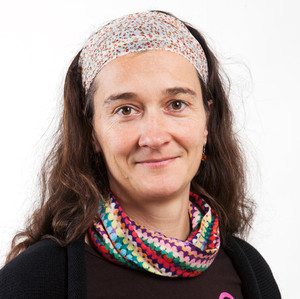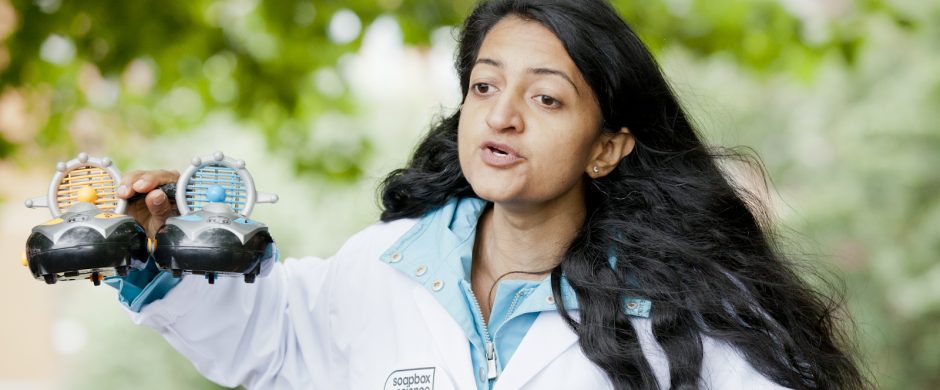 Maria Kahlert is an Associate Professor in biology with specialisation in ecology. Her research focuses on freshwater benthic algae; their biodiversity, how they are regulated by environmental factors, and how they can be used as biomonitors in lakes and streams. Maria Kahlert will take part in the Soapbox Science event in Uppsala on 25 May. She will talk about “Diatoms – microscopic small algae showing water quality and more”.
Maria Kahlert is an Associate Professor in biology with specialisation in ecology. Her research focuses on freshwater benthic algae; their biodiversity, how they are regulated by environmental factors, and how they can be used as biomonitors in lakes and streams. Maria Kahlert will take part in the Soapbox Science event in Uppsala on 25 May. She will talk about “Diatoms – microscopic small algae showing water quality and more”.
SS: How did you get to your current position?
I was called up and offered my current position by a colleague who met me in a joint project, where I probably did a good job.
SS: What, or who, inspired you to get a career in science?
Mainly, nature inspired me first: especially all water fauna. Raising frogs was an annual task. Then, Bernhard Grzimek, his books and documentaries and presence in TV was a great inspiration, especially actually his “Grzimeks Tierleben. Enzyklopädie des Tierreichs”.
SS: What is the most fascinating aspect of your research/work?
There is always something new to learn and understand. And it is not ending. And it is quite free: You can choose (more or less) what you want to focus on!
SS: What attracted you to Soapbox Science in the first place?
I think we scientists communicate too little with the people who actually pay our work. They have a right to ask questions, and to understand, but have very seldom a low-threshold possibility for it.
SS: Sum up in one word your expectations for the day
Communication.
SS: If you could change one thing about the scientific culture right now, what would it be?
The “third task”, i.e. communication of science to the public, should receive more funding and more impact when a researcher’s work is judged, and when grants and money are distributed. Right now, all focus is on scientific publications, excellence and high impact factors, but usually the “excellent” researchers have no time for the details, like both scientific details in the everyday work, and details about direct communication with the public. There is a need for us “everyday researchers”, but it is not easy to get paid for this.
SS: What would be your top recommendation to a woman studying for a PhD and considering pursuing a career in academia?
- Get a mentor, or similar, who is a kind, established, excellent male senior scientist with a large network and communicative skills who wants the best for you, and get help from him.
- Cherish your contacts, you never know where people end up. A large network is important and in particular my more informal contacts have often helped me see new possibilities and to take part in the research. Alone is weak. Large research groups are good for learning and “being included” but you must also establish your own ideas and this is easier in smaller groups, and after changing to a new group.
